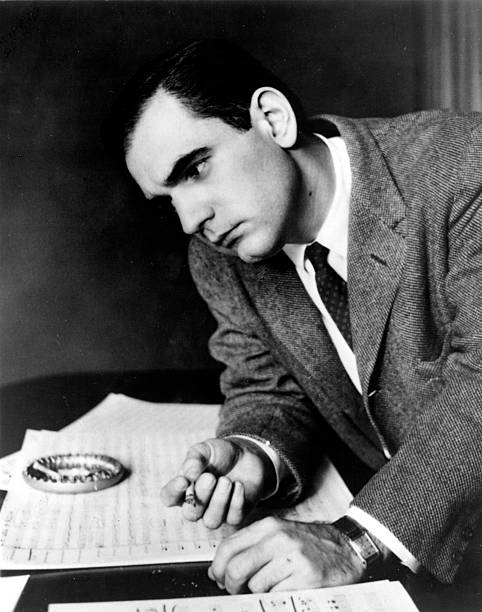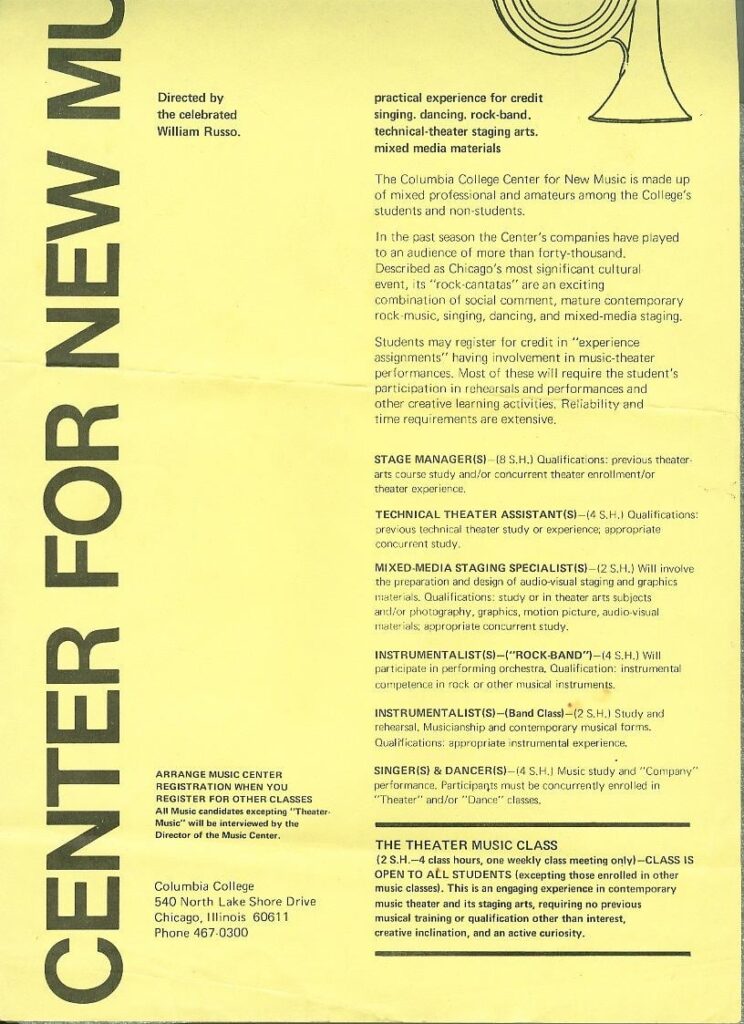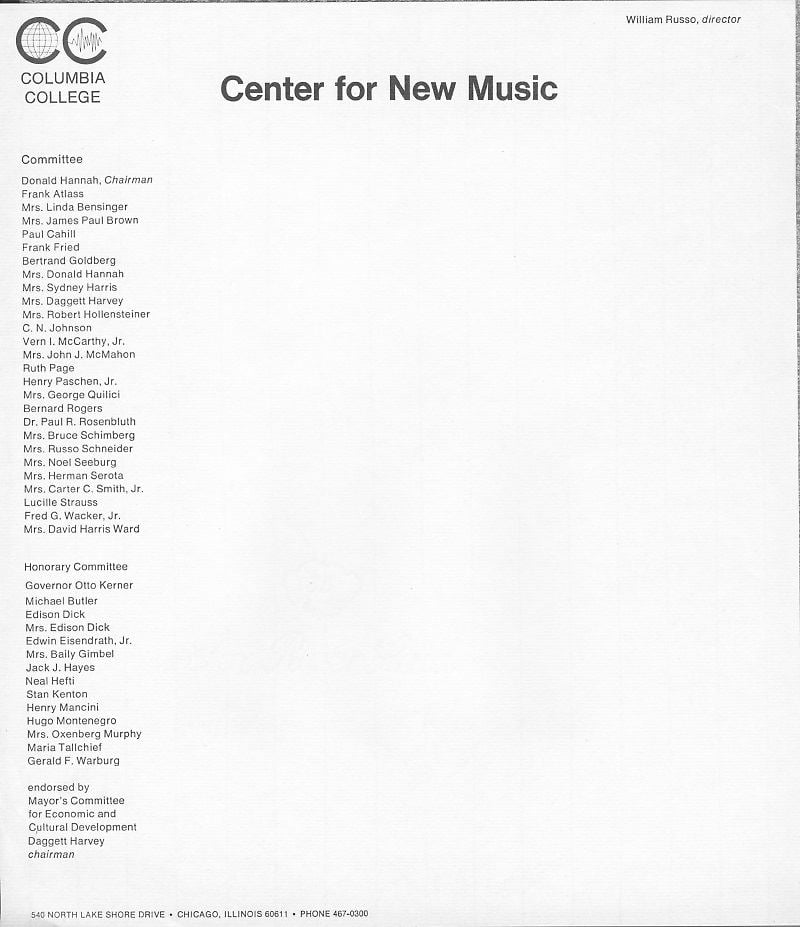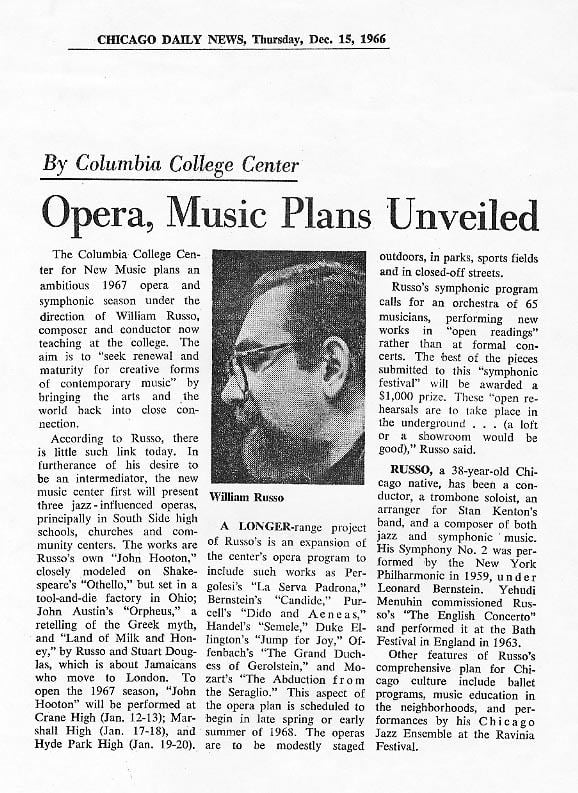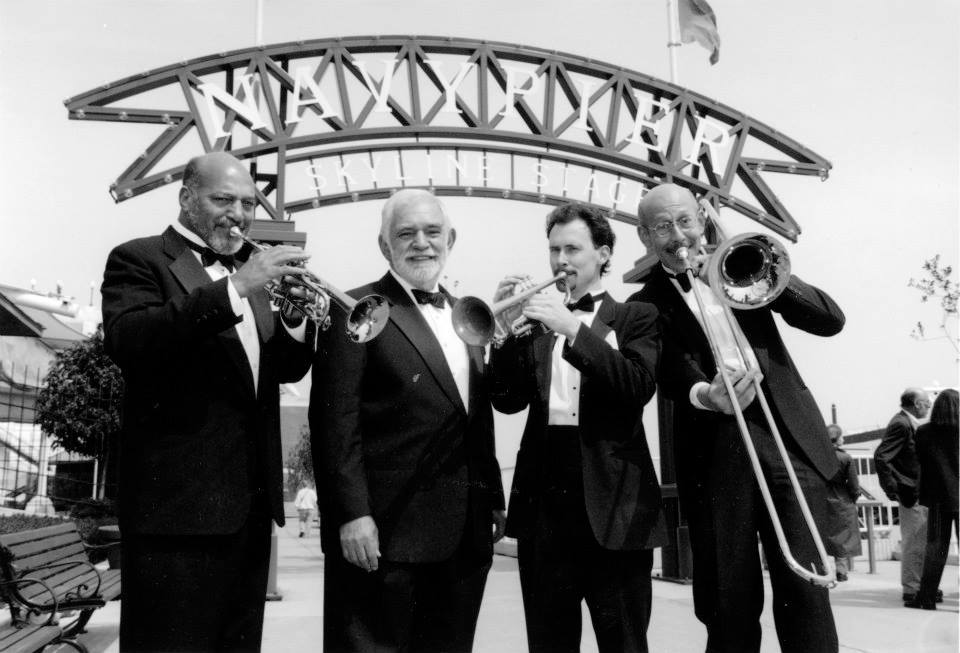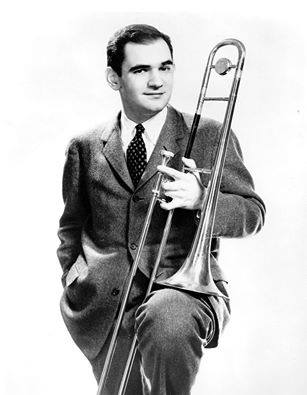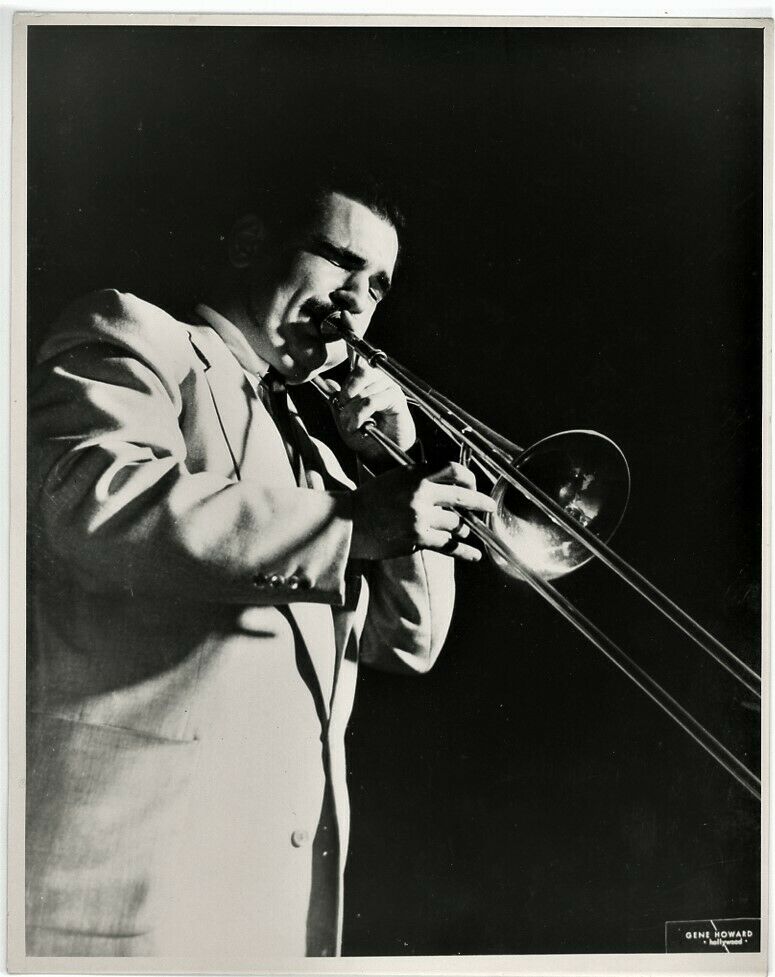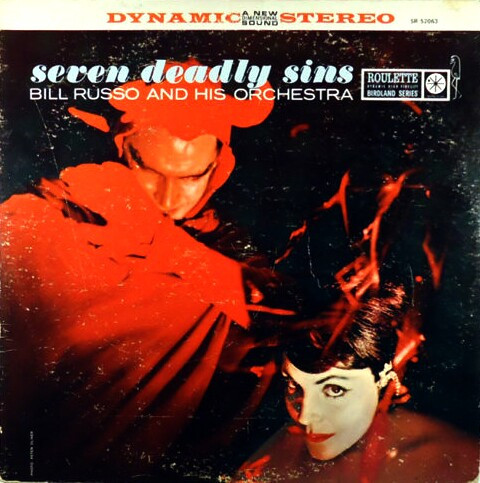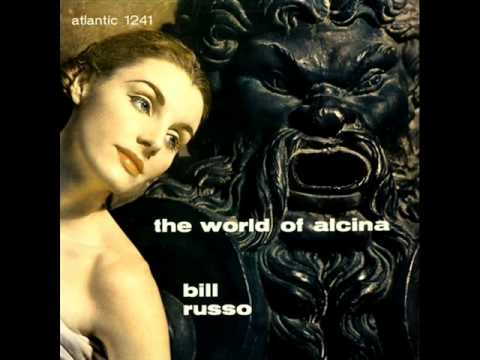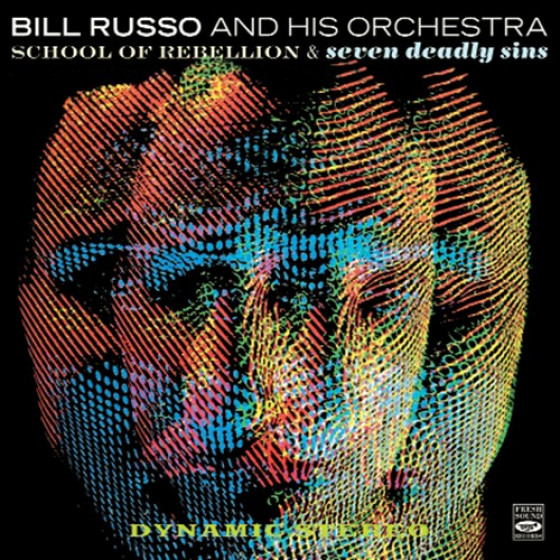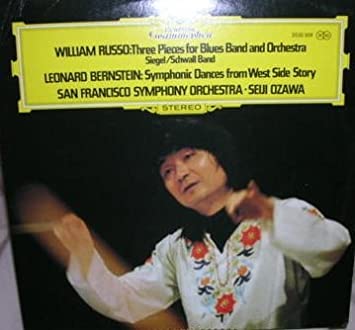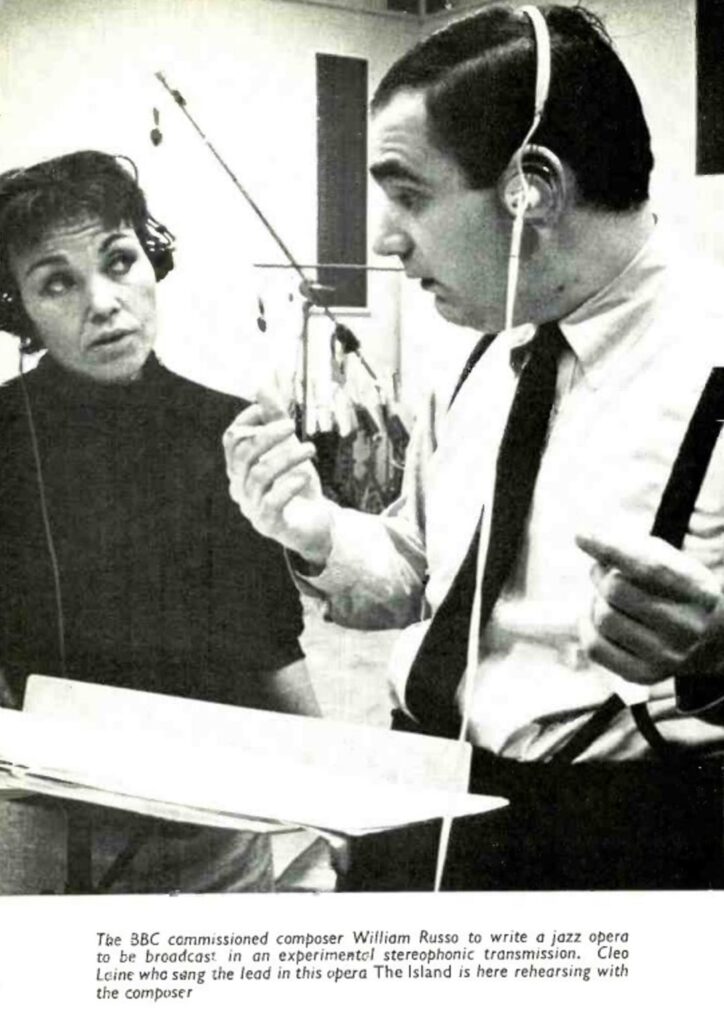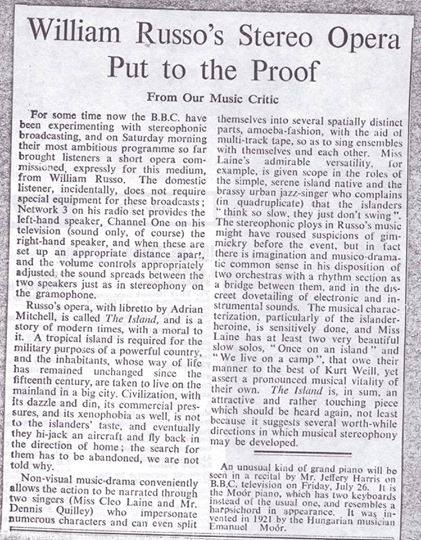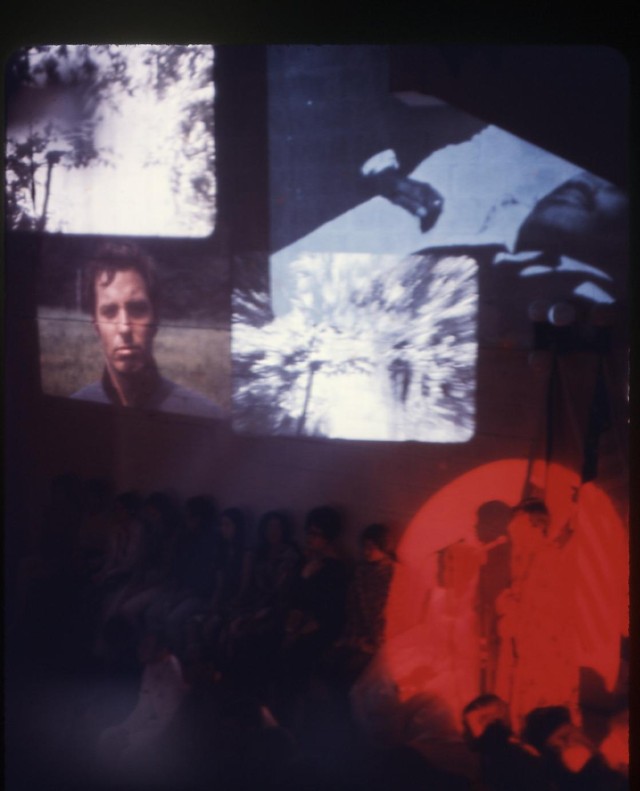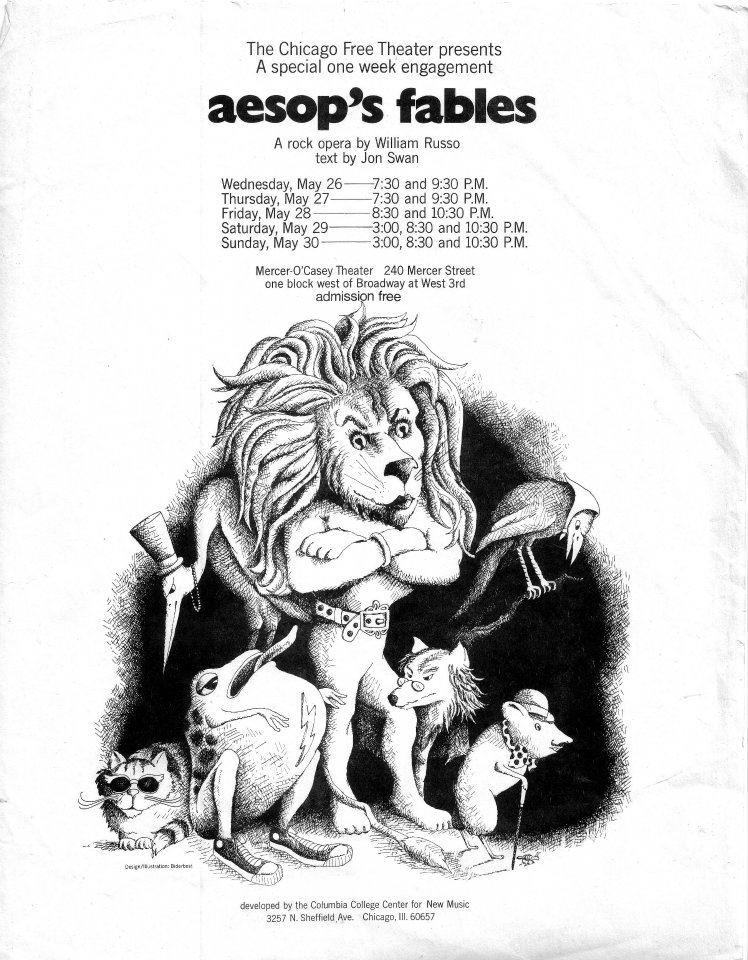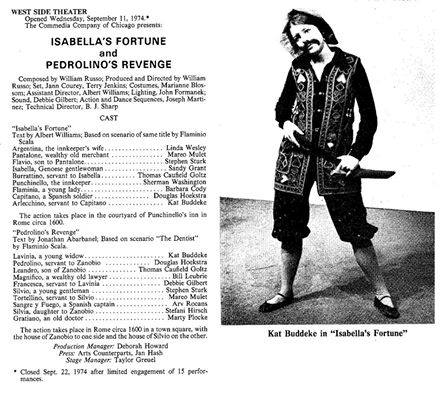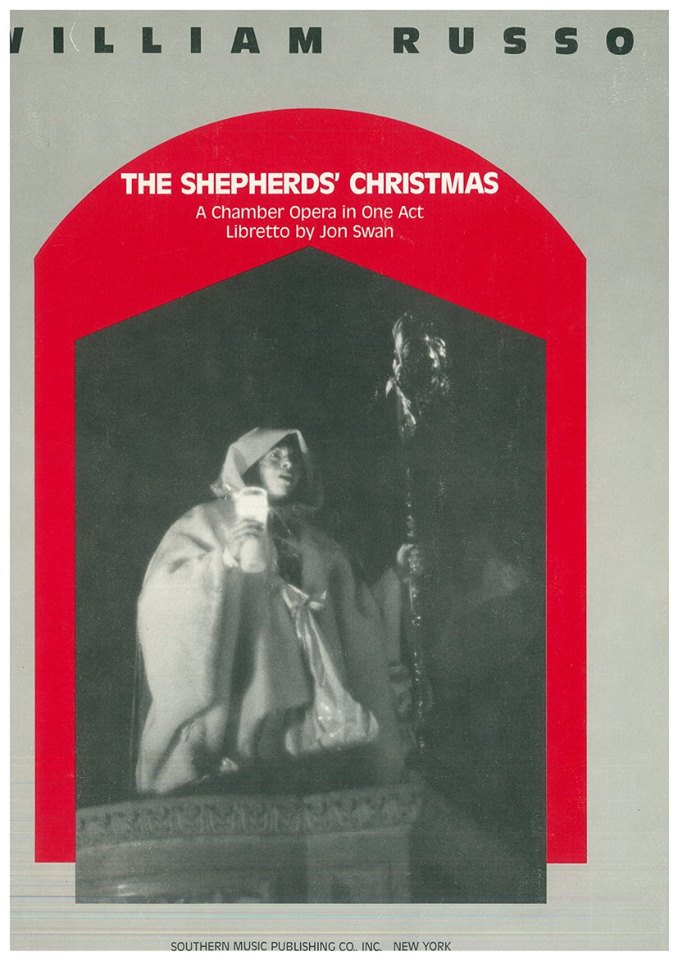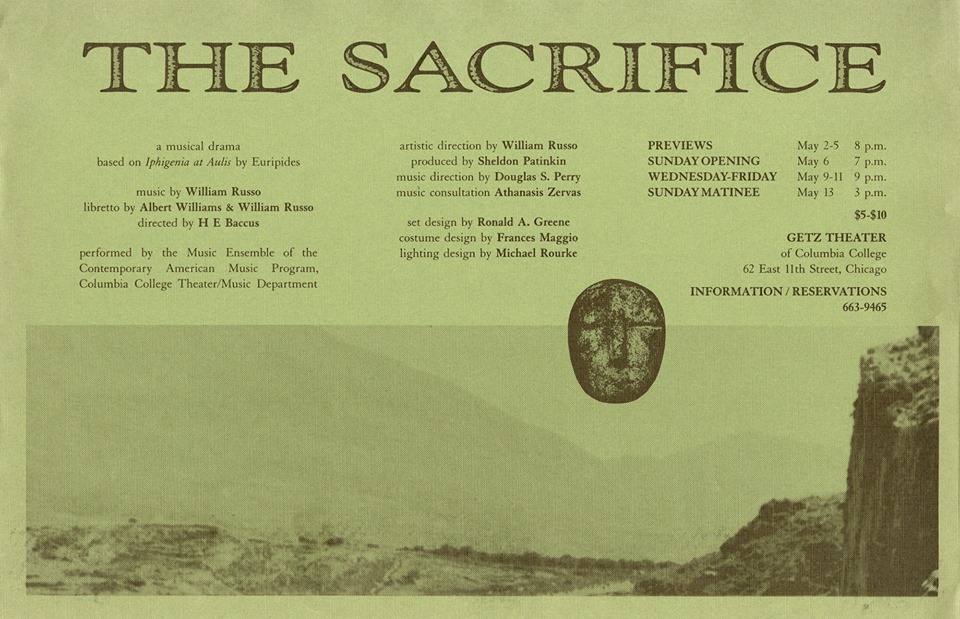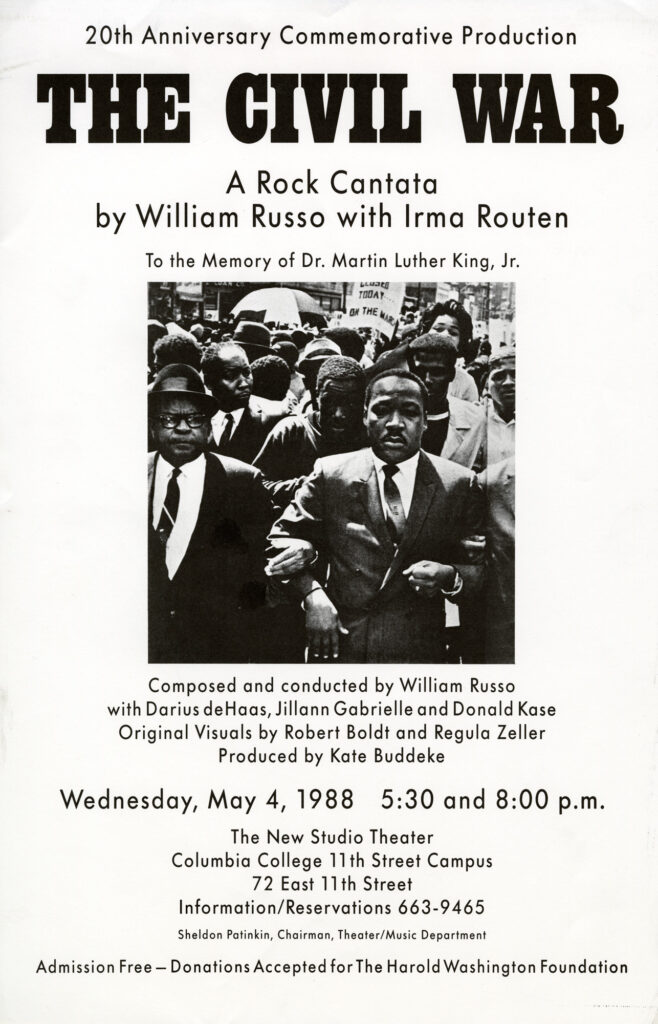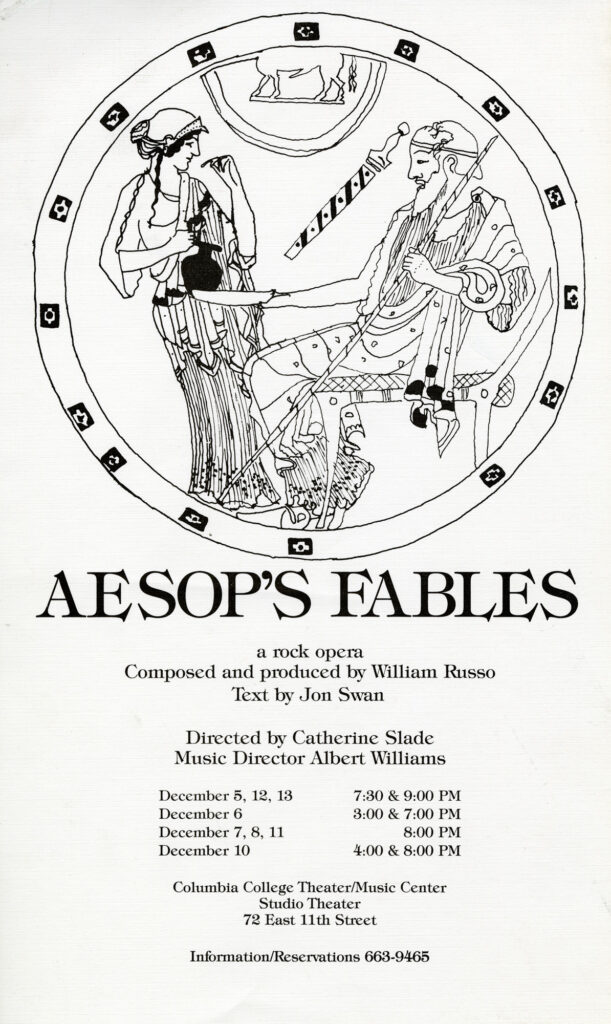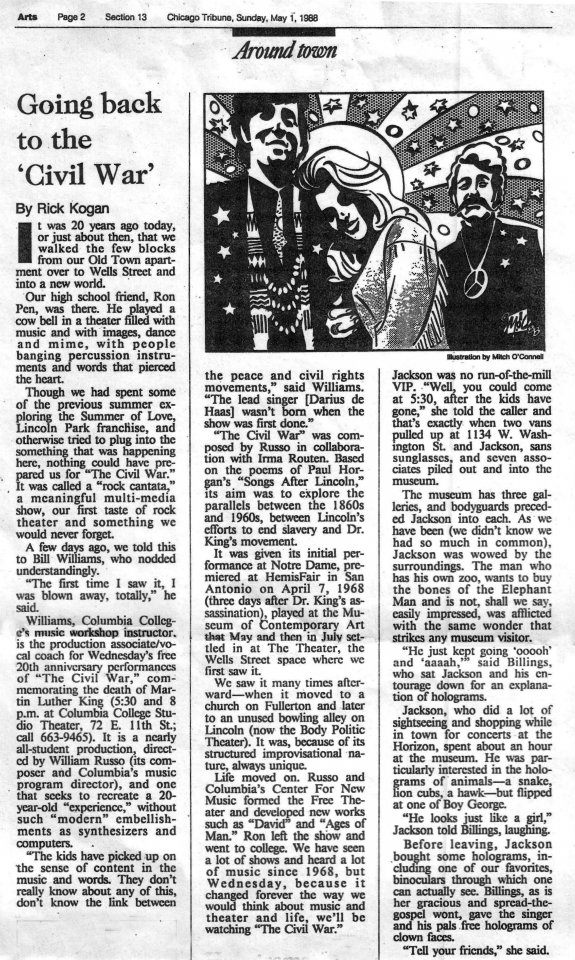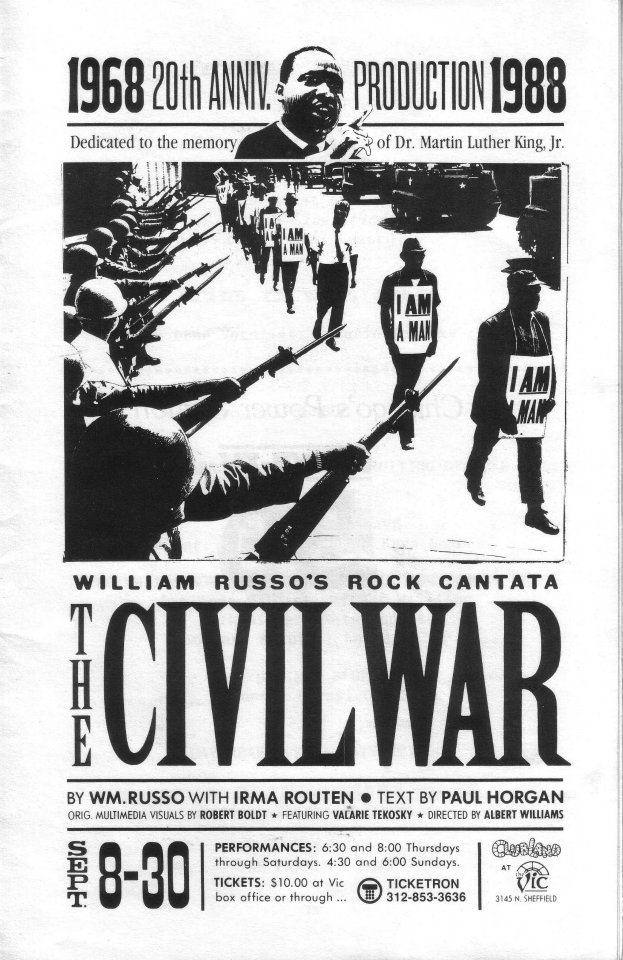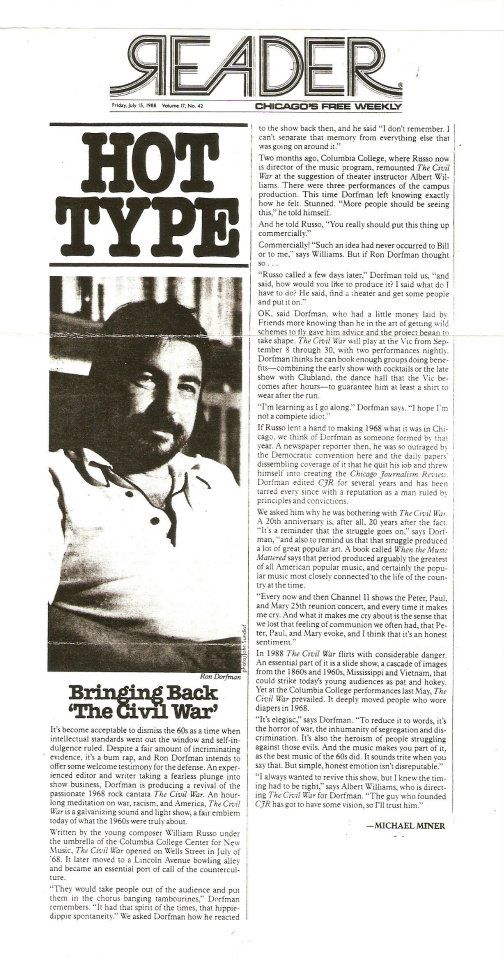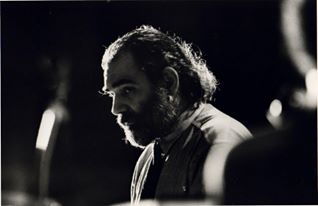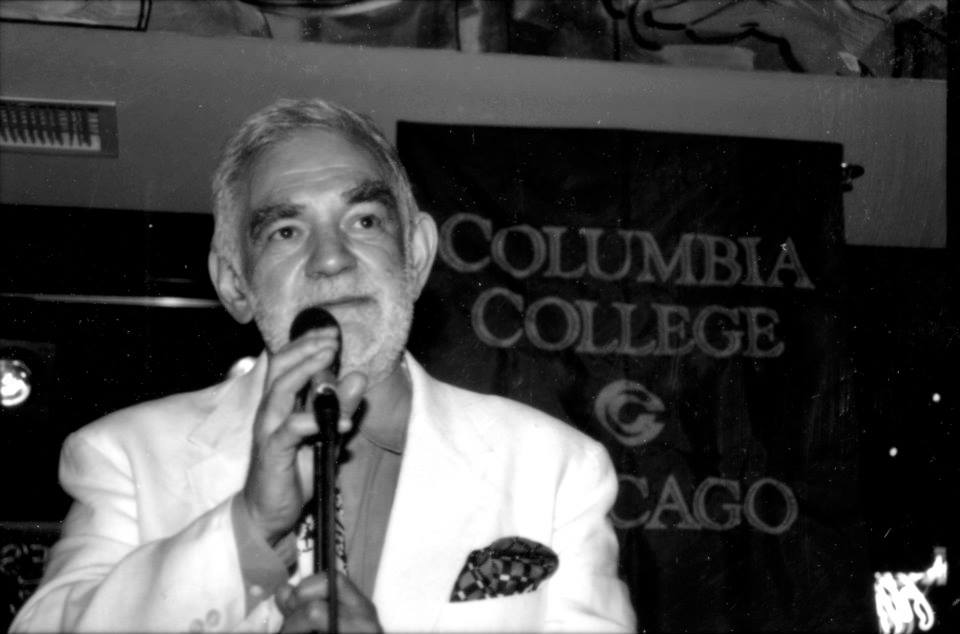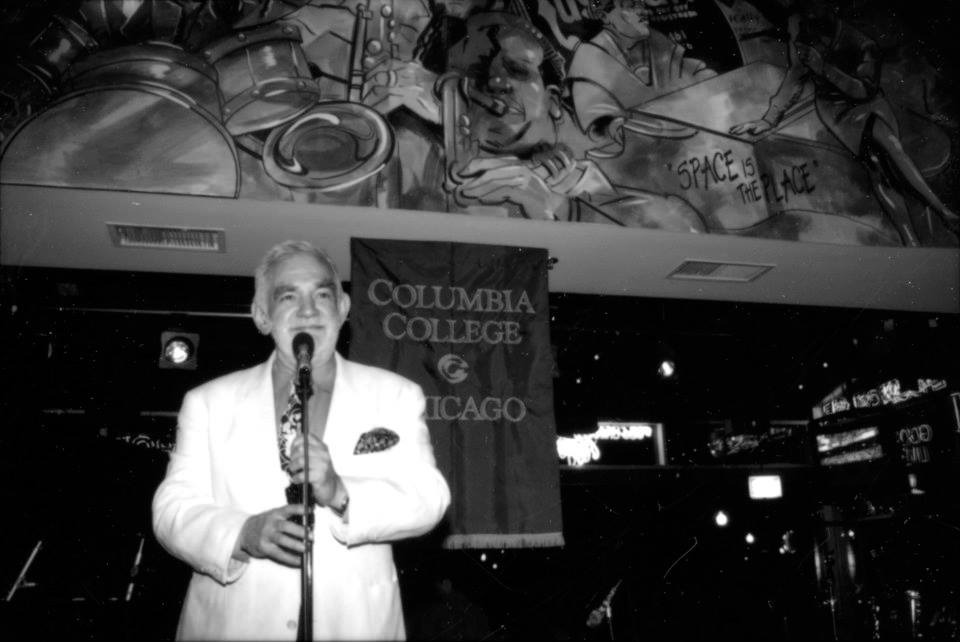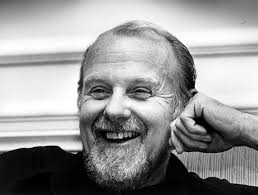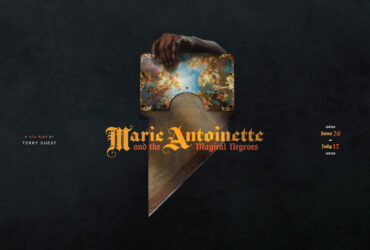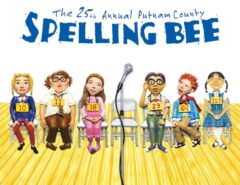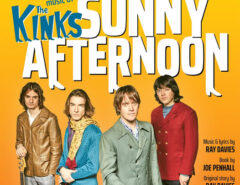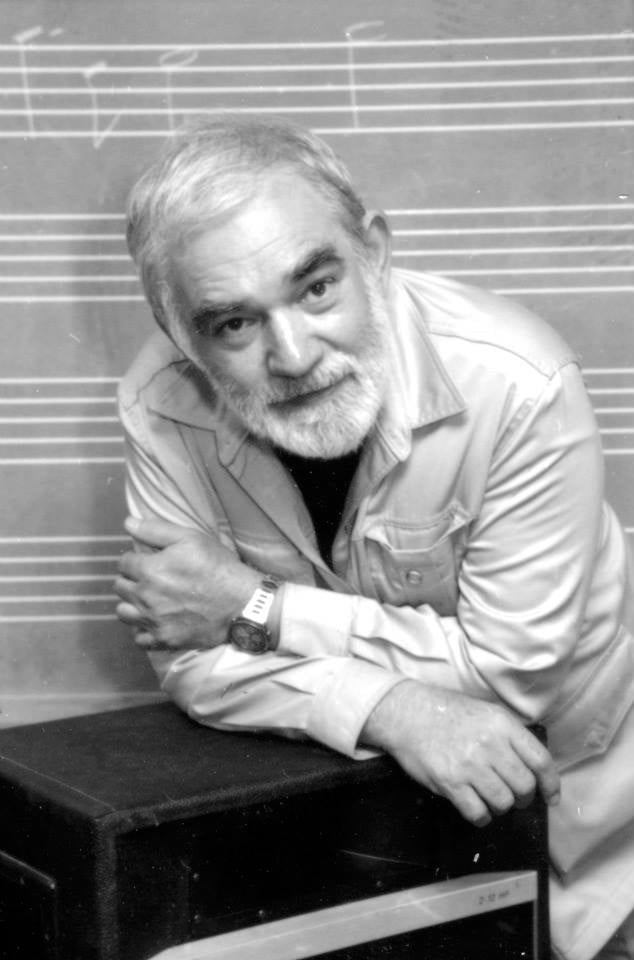
William Russo in the early 1990s. This photo was taken in a classroom at the Columbia College Chicago Getz Theatre Center when the Columbia College Chicago Theatre Department and the Music Department were combined.
The Columbia College Chicago Theatre Department remembers composer, author, and teacher William Russo on the anniversary of his birth. Russo, who founded what is now the Columbia College Chicago Music Department in 1965, was born in Chicago on June 25, 1928. Internationally recognized for his musical works in jazz, rock, blues, symphonic, and theatrical genres, and for his influence on generations of students as a teacher and textbook author, he passed away in Chicago on January 11, 2003, six months after retiring his longtime position as chair of the Columbia College Music Department — and five days after conducting his final concert with the Chicago Jazz Ensemble, the professional jazz orchestra he established under the auspices of Columbia College Chicago.
William “Bill” Russo joined the faculty of Columbia College Chicago at the invitation of the college’s president, Mirron “Mike” Alexandroff, in 1965. At the time, Russo and his family — including his then-wife, music teacher Jeremy Warburg Russo, and his children Camille, Condee, and Alexander — were living in London, where Russo was active as a composer and as founder and leader of the London Jazz Orchestra. He had moved to England in 1962 after enjoying a successful career in the U.S. music scene for more than a decade, including a four-year stint as a composer-arranger and trombonist for the Stan Kenton Orchestra.
The British jazz community embraced Russo as an expert and innovative artist and teacher, comparing him favorably to celebrated British jazz artists such as John Dankworth and Ted Heath. While in London, Russo was interviewed several times by the noted British jazz journalist Les Tomkins. The interviews — one from 1962 and two from 1964 / 1964 — are archived at the United Kingdom’s National Jazz Archive.
Upon returning to his hometown of Chicago, Russo founded the Contemporary American Music Program at the Columbia College Center for New Music. The Center was supported by some of Chicago’s leading supporters of the arts (including choreographer Ruth Page, architect Bertrand Goldberg, and music promoter Frank Fried) and boasted an advisory committee that included Illinois Gov. Otto Kerner, ballerina Maria Tallchief, Hollywood composers Henry Mancini, Neal Hefti, and Hugo Montenegro, and bandleader Stan Kenton, with whom Russo had launched his national career in jazz.
In addition to offering classes, the Center produced concerts by the Chicago Jazz Ensemble, its resident professional band led by Russo. The center also produced operas by the Chicago Opera Theater, a semiprofessional ensemble that Russo established to perform operas by himself and other composers.
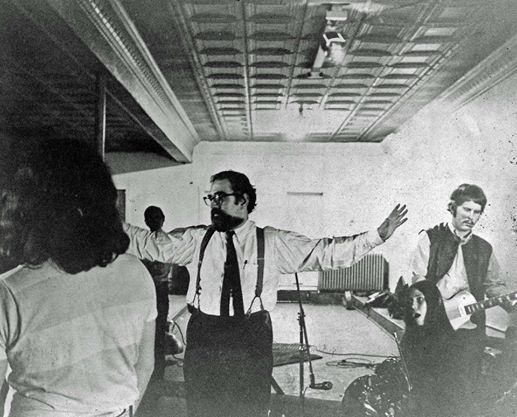
William Russo leading a rehearsal of the Chicago Free Theater at the Body Politic Theatre in Chicago, 1969.
In 1968, the Chicago Opera Theater was reformed as the Free Theater, which specialized in the development and performance of music-theatre works in a contemporary vein, including a string of “rock cantatas” by Russo and others. The Free Theater was one of the seminal ensembles of the “Off-Loop Theatre” movement that flowered in the late 1960s, paving the way for the Chicago theatre explosion of the 1970s and beyond.
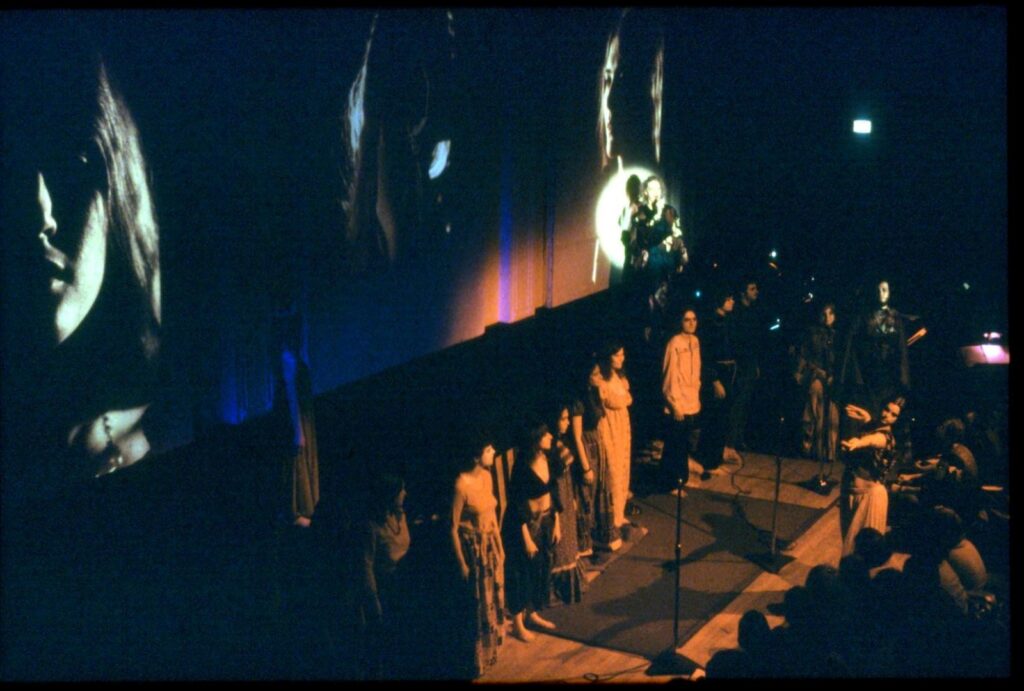
“Song of Songs,” by William Russo, performed by the Chicago Free Theater in 1973. (Photo: Bob Boldt)
As previously reported in this blog, the Free Theater was the subject of a profile by Chicago’s NPR outlet WBEZ in a podcast and print article posted on March 10, 2022. The “Curious City” story by Adriana Cardona-Maguigad — titled “Chicago’s Free Theater Grappled With Issues Like Civil Rights and the Vietnam War” — was complemented by an Instagram slideshow about the Free Theater. To read the WBEZ article, click here.
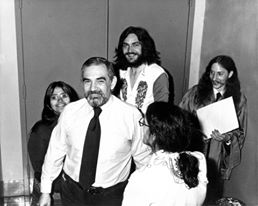
William Russo with students backstage at the Columbia College Chicago graduation ceremony, mid-1970s.
In 1976, the Columbia College Chicago Theatre/Music Department was established as the home of the college’s theatre and music programs. At Russo’s recommendation, playwright and scholar Paul Carter Harrison became the first chair of the merged department, serving from 1976 to 1980, with Russo serving as director of the music program. Harrison was succeeded by Sheldon Patinkin, former artistic director of The Second City comedy theatre, who (again at Russo’s recommendation) served as chair of the merged department (with Russo leading the music program) until 1995, when the two programs separated. Russo then served as chair of the Columbia College Chicago Music Department until June of 2002, and also led and recorded with the Chicago Jazz Ensemble under Columbia College’s auspices. He continued to lead the Chicago Jazz Ensemble after his retirement from the college. As Chicago Tribune music critic Howard Reich reported in his January 12, 2003, obituary of Russo, he led his last concert with the CJE at Chicago’s famed Jazz Showcase nightclub on Monday, January 6, 2003, five days before his death.
In 1998, Russo was interviewed as part of the Columbia College Chicago Oral History Project. You can read the interview with Russo here.
A graduate of Chicago’s Senn High School and Roosevelt University and a onetime sudent of jazz pianist Lennie Tristano, Russo launched his career in Chicago as a dance-band trombonist, and from 1947 to 1950 led an exploratory rehearsal band, Experiment in Jazz. He first earned national attention in the U.S. music world in 1950, when he began to compose orchestral scores for the Stan Kenton Orchestra, with which he also played trombone.
As Russo later recalled to blogger Tyler King, “Pete Rugolo [then a pianist with Stan Kenton’s band] had heard about the Experiment in Jazz Orchestra I was leading in Chicago and came to hear us. He invited me to a concert they [Kenton’s band] were playing that night and there he introduced me to Stan. I was just 20 years old, Kenton was the biggest jazz name in the country, and I am sure I was quite overcome by hero worship that night. I had no idea that a couple of years later he would be calling on me to join as trombonist and arranger for the band.”
King writes: “Russo’s first arrangement for Stan Kenton was Solitaire, which appeared on Kenton’s Innovations in Modern Music album, released in 1950 on the Capitol label.” The record’s personnel included Kenton on piano, Shorty Rogers and Maynard Ferguson on trumpet, Art Pepper and Bud Shank on saxophone, Milt Bernhart and Russo on trombone, Laurindo Almeida on guitar, Shelly Manne on drums, and vocalist June Christy.
His subsequent compositions for the Kenton band include 23 Degrees N 82 Degrees W, Portrait of a Count, and Frank Speaking, a showcase for trombonist Frank Rosolino. All three pieces appeared on Kenton’s landmark 1953 album New Concepts of Artistry in Rhythm.
In 1954, Russo left the Kenton Orchestra and continued private composition and conducting studies (studying with Czechoslovak composer Karel Jirák at Chicago’s Roosevelt University), then moved to New York City in 1958, where he led the 22-piece Bill Russo Orchestra.
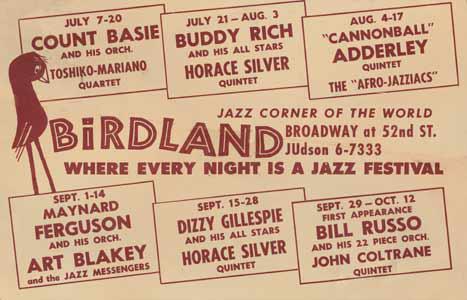
Poster for New York City’s famed Birdland jazz club advertising an appearance there by William Russo and his jazz orchestra. The opening act was the John Coltrane Quintet.
While living in New York he composed his Symphony No.2 in C: Titans, which was premiered by the New York Philharmonic under the baton of NYP music director Leonard Bernstein — who had commissioned the work — with Russo’s former Kenton Orchestra bandmate Maynard Ferguson as trumpet soloist.
Russo was a contributor to the “Third Stream” movement, which sought to combine jazz and classical musical idioms. The term “Third Stream” was coined in 1957 by composer and historian Gunther Schuller, whose GunMar Music publishing company published some of Russo’s music. The Third Stream’s notable adherents today include Chicago-based trumpet player and former Columbia College Music Department teacher Orbert Davis, leader of the Chicago Jazz Philharmonic and a onetime protege of Russo’s.
Besides writing for jazz ensembles, Russo composed classical music, including symphonies and choral works, and works for the theatre, often mixing elements of the genres. His Three Pieces for Blues Band and Symphony Orchestra premiered at the Chicago-area Ravinia Festival in July 1968, with the Siegel-Schwall Band, a top Chicago electric blues group led by harmonica player Corky Siegel and guitarist Jim Schwall, and the Chicago Symphony Orchestra under the baton of Ravinia’s then-music director, Seiji Ozawa.
Ozawa commissioned the work after conducting Russo’s Symphony No.2 in C: Titans at Ravinia in 1967.
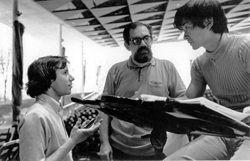
William Russo conferring with with Corky Siegel (left) and Seiji Ozawa at Ravinia Park in Hithland Park, Illinois, in 1968, prior to the Ravinia Festival’s premiere of “Three Pieces for Blues Band and Symphony Orchestra.
Three Pieces for Blues Band and Symphony Orchestra was recorded by the San Francisco Symphony and the Siegel-Schwall Band in 1972, with Ozawa again conducting. The recording was released in 1973 by Deutsche Grammaphon. The music was used by the San Francisco Ballet as the score for Mother Blues, a 1974 dance piece choreographed by the troupe’s artistic director Michael Smuin with scenic and costume design by Tony Walton. The ballet’s title was a nod to a nightclub in Chicago’s Old Town neighborhood where the Siegel-Schwall Band frequently performed.
Its success prompted Deutsche Grammaphon to record Russo’s Street Music, A Blues Concerto in 1977, with Ozawa leading the San Francisco Symphony and soloist Corky Siegel on harmonica and piano.
While living in London Russo composed three operas — John Hooton (1962), The Island (1963), and Land of Milk and Honey (1964).
After returning to Chicago Russo began exploring rock and blues. In 1968, at the height of the Vietnam War, he collaborated with blues singer Irma Routen on an antiwar “rock cantata,” The Civil War, based on poems by Pulitzer Prize-winning historian Paul Horgan.
A politically charged multimedia piece for soloist, chorus, dancers, and rock band, The Civil War paralleled the American Civil War and the martyrdom of President Abraham Lincoln with the turbulent civil rights and antiwar movements of the 1960s and the assassinations of Martin Luther King Jr. (to whose memory the work was dedicated) and Robert F. Kennedy.
In 1969, Russo and director Paul Sills, founding director of The Second City comedy theatre and director of the Chicago and Broadway hit Story Theatre, and community activist Rev. Jim Shiflett established the Body Politic Theatre, one of the seminal theatres in the “Off-Loop Theatre” movement that continued into the 1970s and beyond with such companies as Steppenwolf Theatre. Russo followed The Civil War with other rock-based multimedia music-theater works, including Liberation, David, Joan of Arc, Aesop’s Fables (which had two Off-Broadway productions as well as productions in Chicago and Baltimore), The Bacchae, and Song of Songs. These were performed by the Chicago Free Theater, which Russo founded and directed under the auspices of the Columbia College Center for New Music. Most of the productions had large ensembles of solo singers, choral singers, and dancers — a mix of professionals, amateurs, and Columbia College students. Multimedia effects in the form of film and slide projections and psychedelic light displays enhanced the power of the performances. In addition to its home base of Chicago, the Free Theater performed at college campuses around the country as well as in New York City and London. The troupe also spawned two sister Free Theater ensembles in Baltimore and San Francisco.
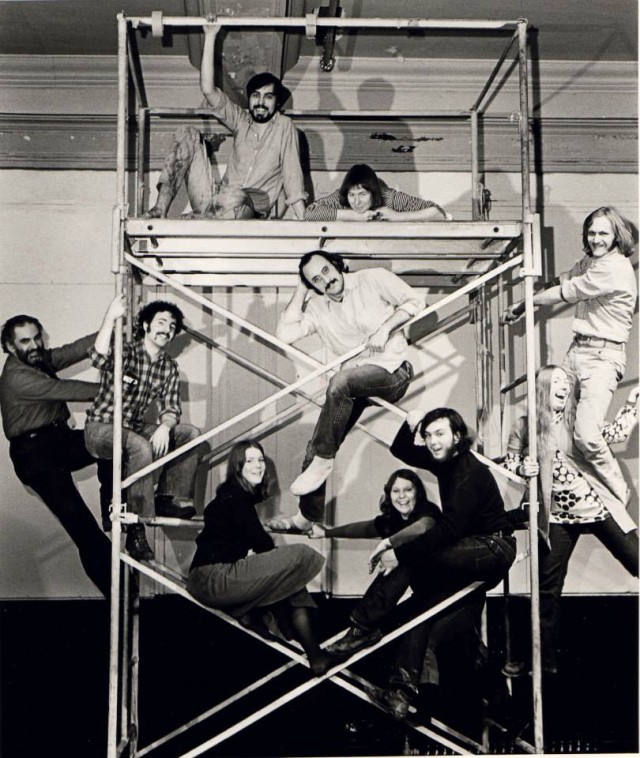
Members of the Free Theater Improvisation Ensemble, 1972. L-R: William Russo; Frank Chaney and Denise Walther (top); Steve Lynch, Kate Buddeke, Rick Sack, Trisha Long, and Albert Williams (under scaffold); Nancy Travers and Joseph Reiser.
Besides written works, the Free Theater presented performances by its Improvisation Ensemble, which created original rock operas based on audience suggestions using improv techniques developed by Russo’s sometime collaborator Paul Sills.
Russo’s other works for the theatre include the opera Antigone (1967); a double bill of operas inspired by commedia dell’arte, Isabella’s Fortune and Pedrolino’s Revenge (performed off-Broadway in 1974); the revue Paris Lights (produced Off-Broadway at the American Place Theatre in 1980); and the operas The Shepherds’ Christmas (1980), The Pay-Off (1983–84), Dubrovsky (1988), and The Sacrifice (1990).
The Shepherds’ Christmas and The Sacrifice were both produced at the Getz Theatre Center of Columbia College Chicago under the direction of H.E. Baccus, former artistic director of Chicago’s acclaimed Steppenwolf Theatre.
The Getz Theatre Center also hosted productions of Russo’s earlier Free Theater hits The Civil War, Aesop’s Fables, and David.
The Columbia College production of The Civil War in May 1988 marked the 20th anniversary of the work’s premiere as well as the 20th anniversary of the asssassination of Martin Luther King Jr., to whose memory the work was dedicated.
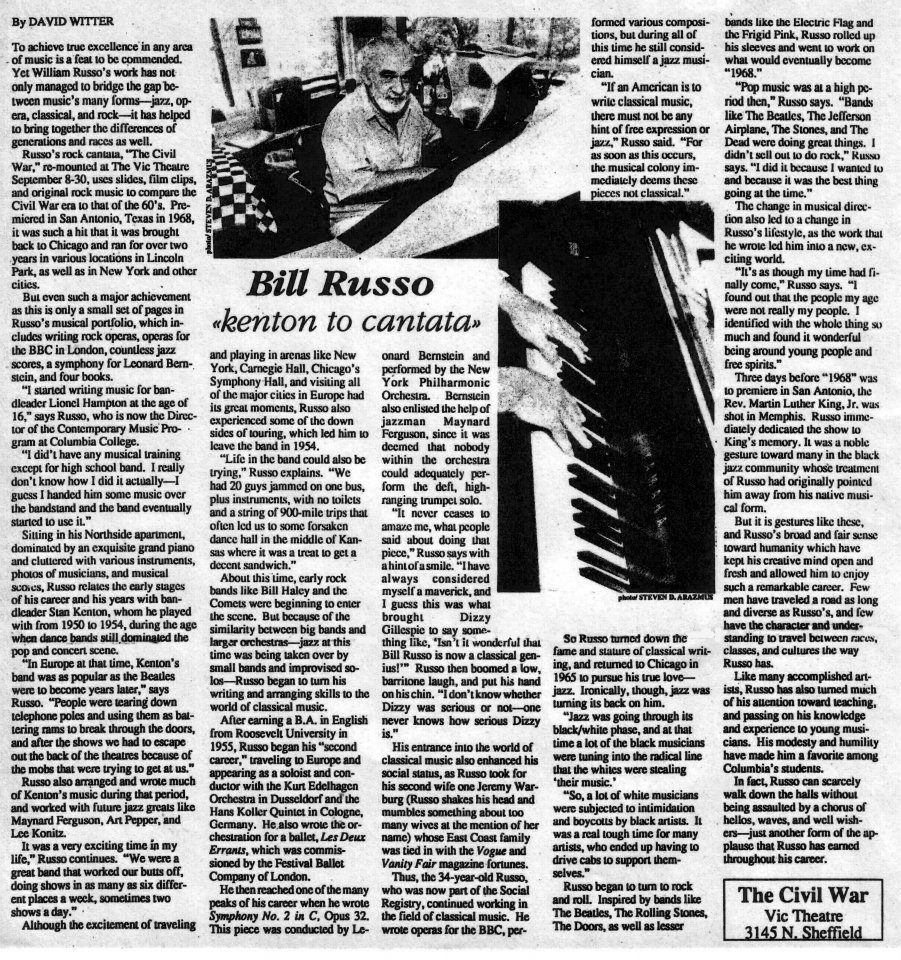 The student production paved the way for a professional revival of The Civil War produced by journalist Ron Dorfman at Chicago’s Vic Theatre in the summer of 1988.
The student production paved the way for a professional revival of The Civil War produced by journalist Ron Dorfman at Chicago’s Vic Theatre in the summer of 1988.

William Russo taking a composer’s bow after a 1989 performance of “The Golden Bird” at Chicago’s Grant Park Music Festival. Behind him (l-r) are singers Robert Orth and Carol LoVerde, conductor Michael Morgan, and narrator Roy Leonard.
Russo also composed a “musical fairy tale” for children, The Golden Bird, for singers, narrator, dancers, and symphony orchestra, which premiered in 1984 under the auspices of the Chicago Symphony Orchestra. The lead soprano role was composed for his third wife, singer Carol Lo Verde, a longtime Columbia College Music Department faculty member, whom he met when she auditioned for his opera The Shepherds’ Christmas.
His collaborators over the decades included Adrian Mitchell, Arnold Weinstein, Jon Swan, Alice Albright Arlen, Naomi Lazard, Robert Perrey, Joseph Reiser, Donald T. Sanders, Albert Williams, Jonathan Abarbanel, and Denise DeClue. Russo also composed art songs set to poetry by Edna St. Vincent Millay, W. H. Auden, and Gertrude Stein, as well as scores for dance and film.
His screen composing credits include the soundtrack for Everybody Rides the Carousel, a 1975 animated film about the stages of life, based on the writings of psychoanalyst Erik Erikson. Directed by John Hubley and written and produced by Hubley and his wife Faith Hubley, the film featured a cast of voice actors that included Meryl Streep, Alvin Epstein, Dee Dee Bridgewater, Pablo Casals, Dinah Manoff, Jack Gilford, John Randolph, and Juanita Moore, and Cicely Tyson hosted the film’s 1976 television premiere on CBS. His commissioned score “Listen, Beneath” was composed for a 1993 performance by the Joseph Holmes Dance Theatre. The dance piece, choreographed by Randy Duncan and accompanied by the Chicago Jazz Ensemble, premiered in 1993 at the Civic Opera House in Chicago to rave reviews.
Russo composed more than 200 pieces for jazz orchestra, and there were more than 30 recordings of his work.

William Russo (right) with two of his idols, jazz artists Duke Ellington (center) and Billy Strayhorn (left).
His five-decade career included collaborations with his idol Duke Ellington, his high school classmate Lee Konitz, Leonard Bernstein, Seiji Ozawa, Stan Kenton, Cannonball Adderley, Yehudi Menuhin, Dizzy Gillespie, Benny Carter, Maynard Ferguson, Billie Holiday, Cleo Laine, and Annie Ross. Russo’s students over the decades included Oscar-winning composers John Barry and Fred Karlin; Tony Award-winning composer-lyricist Mark Hollmann (Urinetown); William Mathieu, original musical director of The Second City comedy theatre in Chicago; Richard Peaslee and Patrick Gowers, composer and musical director respectively of the fabled 1964 Royal Shakespeare Company production Marat/Sade and its 1967 screen adaptation; and George Jean Nathan Award for Dramatic Criticism-winning critic and Columbia College alum Albert Williams ’73, a longtime faculty member at the Columbia College Chicago Theatre Department.
A voracious reader, he wrote four books on music: Jazz Composition and Orchestration (1968), Composing for the Jazz Orchestra (1973), Workbook for Composing for the Jazz Orchestra (1978) with co-author Reid Hyams, and Composing Music: A New Approach (1983) written with former students Jeffrey Ainis and David Stevenson.
In 1990, he received a Lifetime Achievement Award from the National Academy of Recording Arts and Sciences.
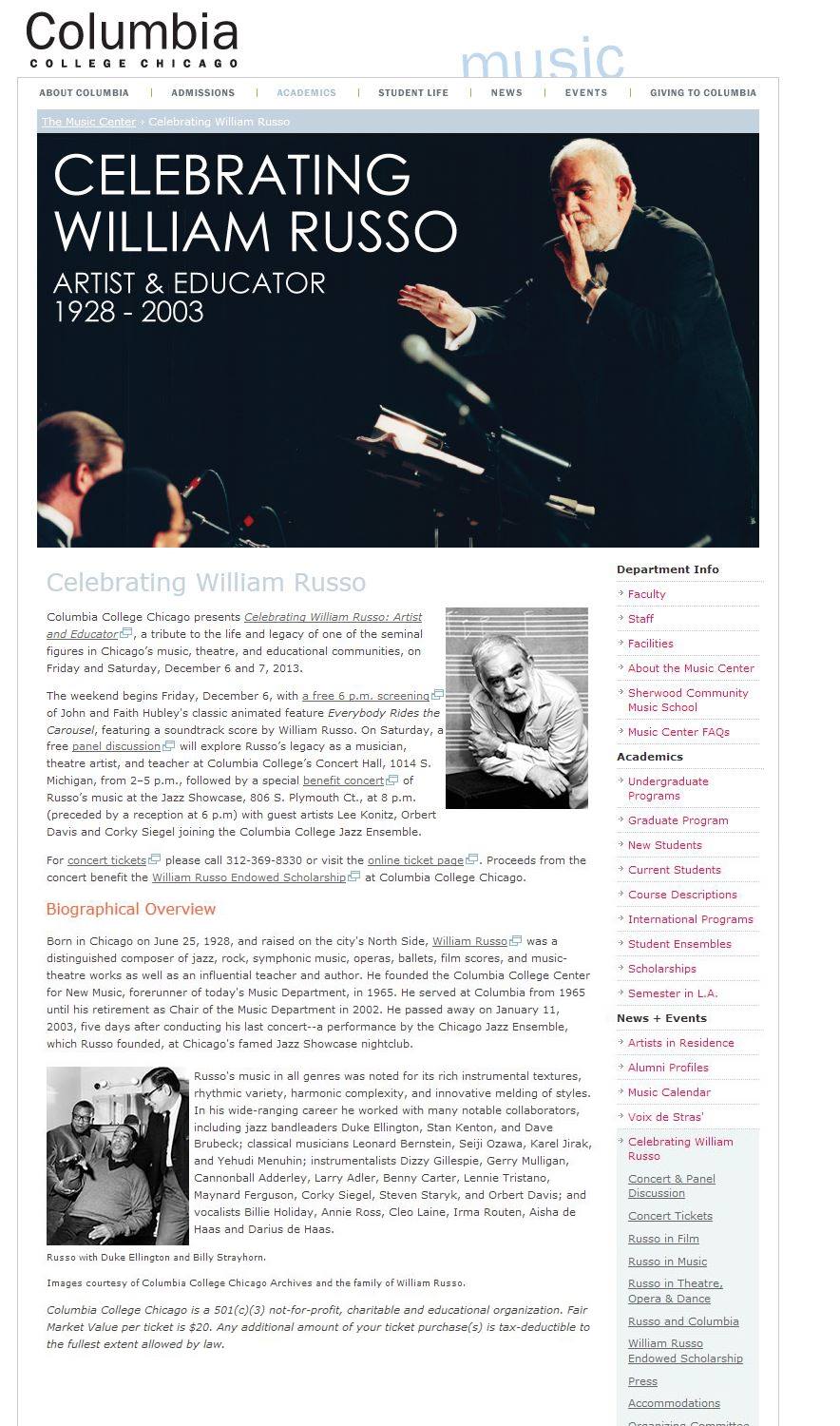 On December 6 and 7, 2013, Columbia marked the tenth anniversary of Russo’s passing with “Celebrating William Russo: Artist and Educator,” a weekend of events exploring Russo’s career. The weekend climaxed with a performance by the Columbia College Jazz Ensemble, led by Music Department faculty member Scott Hall and featuring guest artists Lee Konitz, Orbert Davis, and Corky Siegel.
On December 6 and 7, 2013, Columbia marked the tenth anniversary of Russo’s passing with “Celebrating William Russo: Artist and Educator,” a weekend of events exploring Russo’s career. The weekend climaxed with a performance by the Columbia College Jazz Ensemble, led by Music Department faculty member Scott Hall and featuring guest artists Lee Konitz, Orbert Davis, and Corky Siegel.
Russo’s music and personal papers are archived at the Smithsonian Institution in Washington, D.C., and in the College Archives & Special Collections at Columbia College Chicago. His legacy lives on through the William Russo Endowed Scholarship for Excellence in Music at Columbia College and through the continued success of the Columbia College Chicago Music Department, which now offers both Bachelor of Arts (BA) and Bachelor of Music (BMus) degrees in Music, a Bachelor of Science (BS) degree in Music Technology, and a Master of Fine Arts (MFA) degree in Music Composition for the Screen.
For more information on William Russo, please visit the Facebook page William Russo and Chicago Free Theater.

